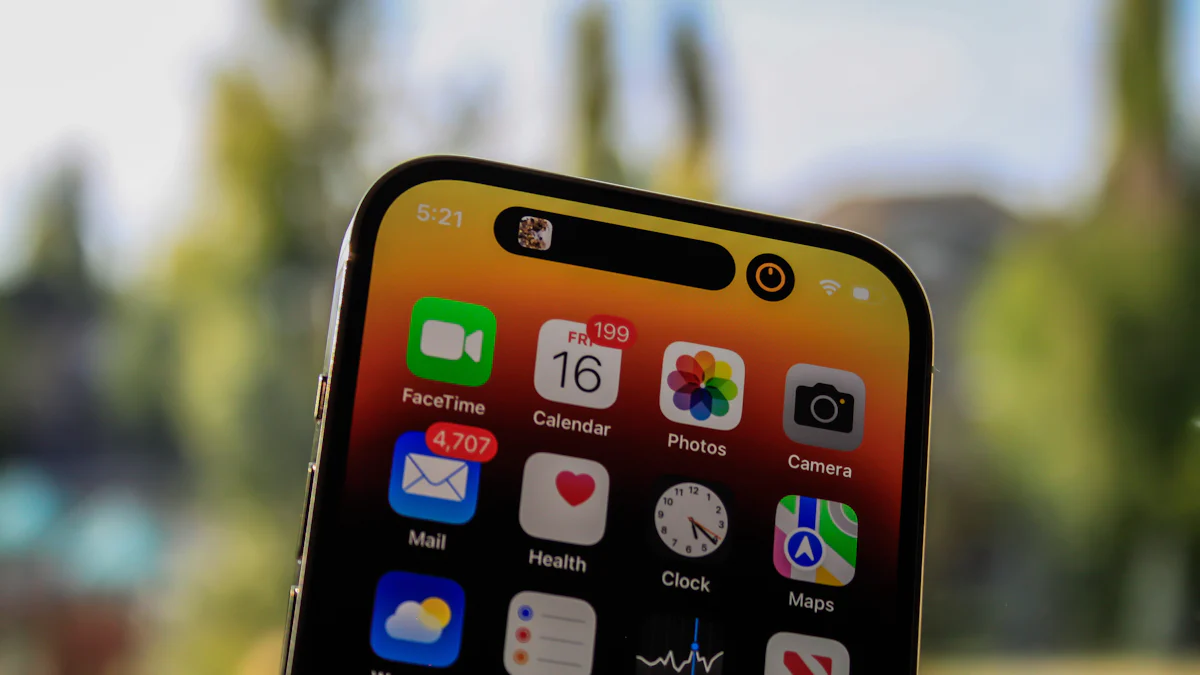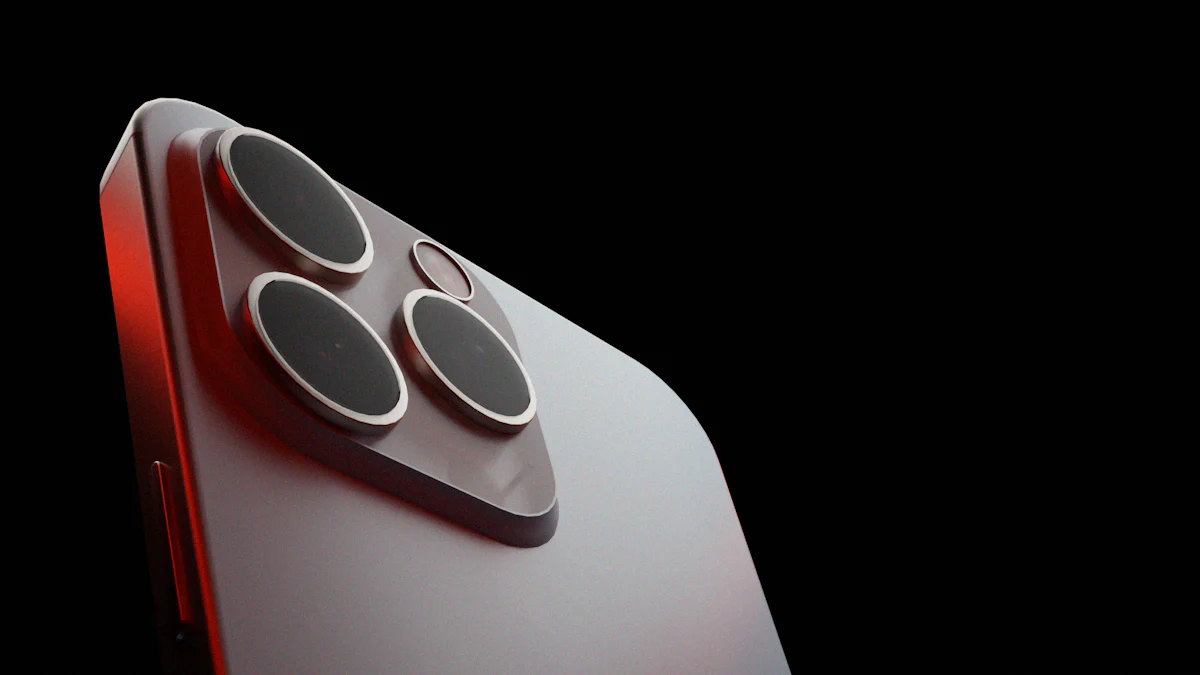Will Apple Intelligence work on iPhone 14 Pro, iPhone 14 Pro Max?

Will Apple Intelligence Work on iPhone 14 Pro?
Apple Intelligence has become a buzzword among tech enthusiasts. You might wonder if your iPhone 14 Pro can harness this cutting-edge technology. Let's dive into the technical requirements and current limitations to understand why Apple Intelligence may not work on your device.
Technical Requirements for Apple Intelligence
Hardware Specifications Needed
To run Apple Intelligence, your device needs specific hardware. The latest models, like the iPhone 15 Pro and iPhone 16 series, come equipped with the necessary A17 Pro or M-series chips. These chips provide the processing power required for advanced AI features. Unfortunately, the iPhone 14 Pro lacks these chips, which means it doesn't meet the hardware specifications needed for Apple Intelligence.
Software Compatibility
Software compatibility plays a crucial role in determining whether Apple Intelligence will function on your device. Apple has designed its AI features to work seamlessly with the latest software updates. However, the iPhone 14 Pro is excluded from these updates, limiting its ability to support Apple Intelligence. This exclusion stems from the need for newer software that aligns with the advanced hardware found in the latest iPhone models.
Current Limitations
Memory and Processing Constraints
The iPhone 14 Pro faces memory and processing constraints that hinder its ability to support Apple Intelligence. With less than 8GB of RAM, it struggles to handle the demands of AI applications. This limitation affects the device's performance, making it challenging to run complex AI tasks efficiently.
Exclusion from Software Updates
Apple's decision to exclude the iPhone 14 Pro from software updates further limits its capabilities. While newer models receive updates that enhance AI functionality, the iPhone 14 Pro remains stuck with older software versions. This exclusion prevents users from accessing the latest Apple Intelligence features, leaving them with a less advanced experience.
Will Apple Intelligence Work on iPhone 14 Pro Max?

You might be curious if Apple Intelligence will work on your iPhone 14 Pro Max. Let's explore why it may or may not be possible by comparing it with the iPhone 14 Pro and examining user experiences.
Comparison with iPhone 14 Pro
Similarities in Hardware
Both the iPhone 14 Pro and iPhone 14 Pro Max share several hardware similarities. They both lack the A17 Pro or M-series chips, which are essential for running Apple Intelligence. This absence means neither device meets the necessary hardware requirements. You won't find the advanced processing power needed for AI features in these models.
Differences in Features
Despite their hardware similarities, the iPhone 14 Pro Max offers some distinct features. It boasts a larger display and a slightly better battery life compared to the iPhone 14 Pro. However, these differences don't impact the ability to run Apple Intelligence. The lack of required chips remains a significant barrier. So, will apple intelligence work on iPhone 14 Pro Max? Unfortunately, the answer is no, due to these hardware limitations.
User Experiences and Feedback
Satisfaction Levels
Many users of the iPhone 14 Pro Max express satisfaction with its performance. They appreciate its camera quality, display size, and overall functionality. However, when it comes to Apple Intelligence, satisfaction levels drop. Users feel disappointed that their relatively new devices can't access these advanced features. This dissatisfaction stems from unmet expectations regarding AI capabilities.
Common Complaints
Common complaints among iPhone 14 Pro Max users revolve around the exclusion from Apple Intelligence. They feel left out as newer models receive updates and features that enhance AI functionality. Users often question why their devices, which are still high-end, don't support these innovations. This exclusion leads to frustration and a sense of being forced to upgrade sooner than anticipated.
Exploring Alternatives for iPhone 14 Pro Users
If you're an iPhone 14 Pro user, you might feel left out of the Apple Intelligence loop. But don't worry! There are ways to simulate some of these features on your device. Let's explore a couple of alternatives that can help you get a taste of AI capabilities.
Using Shortcuts to Simulate Apple Intelligence
Apple's Shortcuts app offers a creative way to mimic some AI functionalities. You can create custom shortcuts to automate tasks and enhance your iPhone experience.
Creating Custom Shortcuts
Creating custom shortcuts is a fun and engaging process. You can design shortcuts to perform specific actions with just a tap or voice command. For example, you can set up a shortcut to send a message, play your favorite playlist, or even control smart home devices. The possibilities are vast, and you can tailor them to suit your needs.
Open the Shortcuts app on your iPhone.
Tap the "+" icon to create a new shortcut.
Choose actions from the list to build your shortcut.
Name your shortcut and assign a trigger phrase if you want to use Siri.
Limitations of Shortcuts
While shortcuts offer flexibility, they come with limitations. They can't fully replicate the advanced AI features found in newer iPhones. Shortcuts rely on predefined actions, so they lack the dynamic learning and adaptability of true AI. Additionally, setting up complex shortcuts can be time-consuming and may require some trial and error.
Third-party Applications
Third-party apps provide another avenue to explore AI-like features on your iPhone 14 Pro. These apps can offer unique functionalities that enhance your device's capabilities.
Available AI Apps
Several AI apps are available on the App Store. These apps can perform tasks like photo editing, language translation, and voice recognition. Some popular options include:
Grammarly: Helps with writing and grammar checks.
Google Translate: Offers real-time language translation.
Prisma: Transforms photos into artwork using AI filters.
These apps can add a layer of intelligence to your iPhone, making it more versatile.
Integration Challenges
However, integrating third-party apps with your iPhone can present challenges. Compatibility issues may arise, and some apps might not work seamlessly with your device's existing features. Additionally, privacy concerns can be a factor, as these apps often require access to personal data to function effectively.
Apple User, an expert in Apple Devices, notes: "Older iPhones will not get an AI because it would have to be on the cloud, which cannot be done because of a compromise to the user’s privacy."
The Future of Apple Intelligence in Older Models

Potential Software Updates
Apple Intelligence has become a hot topic, and you might wonder if older iPhones will ever get a taste of it. Let's explore the potential for software updates that could bring some AI features to older models.
Rumored Features
Rumors often swirl around Apple's plans, and the same goes for potential software updates. Some speculate that Apple might introduce scaled-down versions of its AI features for older devices. These features could include basic AI tasks that don't require heavy processing power. While these rumors are exciting, it's essential to remember that they remain unconfirmed.
Expected Release Timelines
When it comes to release timelines, Apple tends to keep its cards close to its chest. If any updates are in the pipeline, they might coincide with major iOS releases. Historically, Apple unveils new software features during its annual Worldwide Developers Conference (WWDC). So, if you're hoping for AI updates, keep an eye on these events for potential announcements.
Long-term Support Plans
Apple's strategy for supporting older devices plays a crucial role in determining the future of Apple Intelligence on these models. Let's delve into how Apple approaches long-term support and its impact on user loyalty.
Apple's Strategy for Older Devices
Apple has a reputation for providing long-term support for its devices. However, when it comes to cutting-edge features like Apple Intelligence, the company prioritizes newer hardware. This strategy ensures that users experience the best performance and security. While this approach makes sense from a technical standpoint, it can leave older device users feeling left out.
Apple's public information highlights the emphasis on privacy and minimizing harmfulness in AI models. This focus aligns with Apple's strategy of ensuring secure and efficient processing on newer devices.
Impact on User Loyalty
The exclusion of older models from Apple Intelligence can impact user loyalty. Many users feel frustrated when their relatively new devices don't support the latest features. This frustration can lead to a sense of being forced to upgrade sooner than expected. However, Apple's commitment to privacy and security often resonates with users, maintaining a level of trust and loyalty.
In conclusion, while the future of Apple Intelligence in older models remains uncertain, Apple's focus on privacy and performance continues to shape its strategy. As a user, staying informed about potential updates and exploring available alternatives can help you make the most of your device.
You might wonder why Apple Intelligence doesn't work on the iPhone 14 Pro and Pro Max. The answer lies in hardware limitations. These models lack the A17 Pro or M-series chips, which are essential for running advanced AI features. As AI continues to evolve, it will play a significant role in enhancing smartphone experiences. Apple's deep integration of AI into iOS aims to improve cross-device functionality and deliver a more personalized experience. While your current device may not support these features, you can still explore alternatives like custom shortcuts and third-party apps to enhance your iPhone's capabilities.
See Also
Resolving Authentication Problems Using Personal Access Codes and API Key Phasing Out in Airtable

